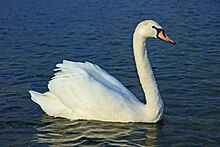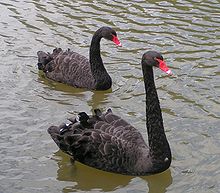
Back Vervalsbaarheid Afrikaans Falsifikation ALS ተረችነት Amharic دحوضية Arabic Falsifikasiya edilmə Azerbaijani Фалсифицируемост Bulgarian Falsabilitat Catalan بەھەڵە خستنەوە CKB Falzifikovatelnost Czech Falsifikationisme Danish


Falsifiability is a concept from philosophy of science. It refers to whether a particular theory can be proved wrong.
There are different ways in which it can be done. The easiest way to do it is to find an example where the theory should apply, but fails. As an example: Swans are birds related to ducks and geese. Today, several species of swans are known. For most people in Europe, a swan is a large white bird: The only species of swan that occurs in Europe is white. Several hundred years back, people in Europe therefore thought that all swans were white. In 1697, the Dutch explorer Willem de Vlamingh found black birds that looked like swans, during an expedition on the shores of Swan River, in Australia. Later, it turned out these birds were indeed swans. With his discovery, de Vlamingh had falsified the theory that all swans were white.
That was a trivial example. A very important example is the idea that the Earth goes round the Sun, which was a step in understanding how the Solar System works.[1]
- ↑ See our article on Galileo#Trial for heresy for more information.
© MMXXIII Rich X Search. We shall prevail. All rights reserved. Rich X Search